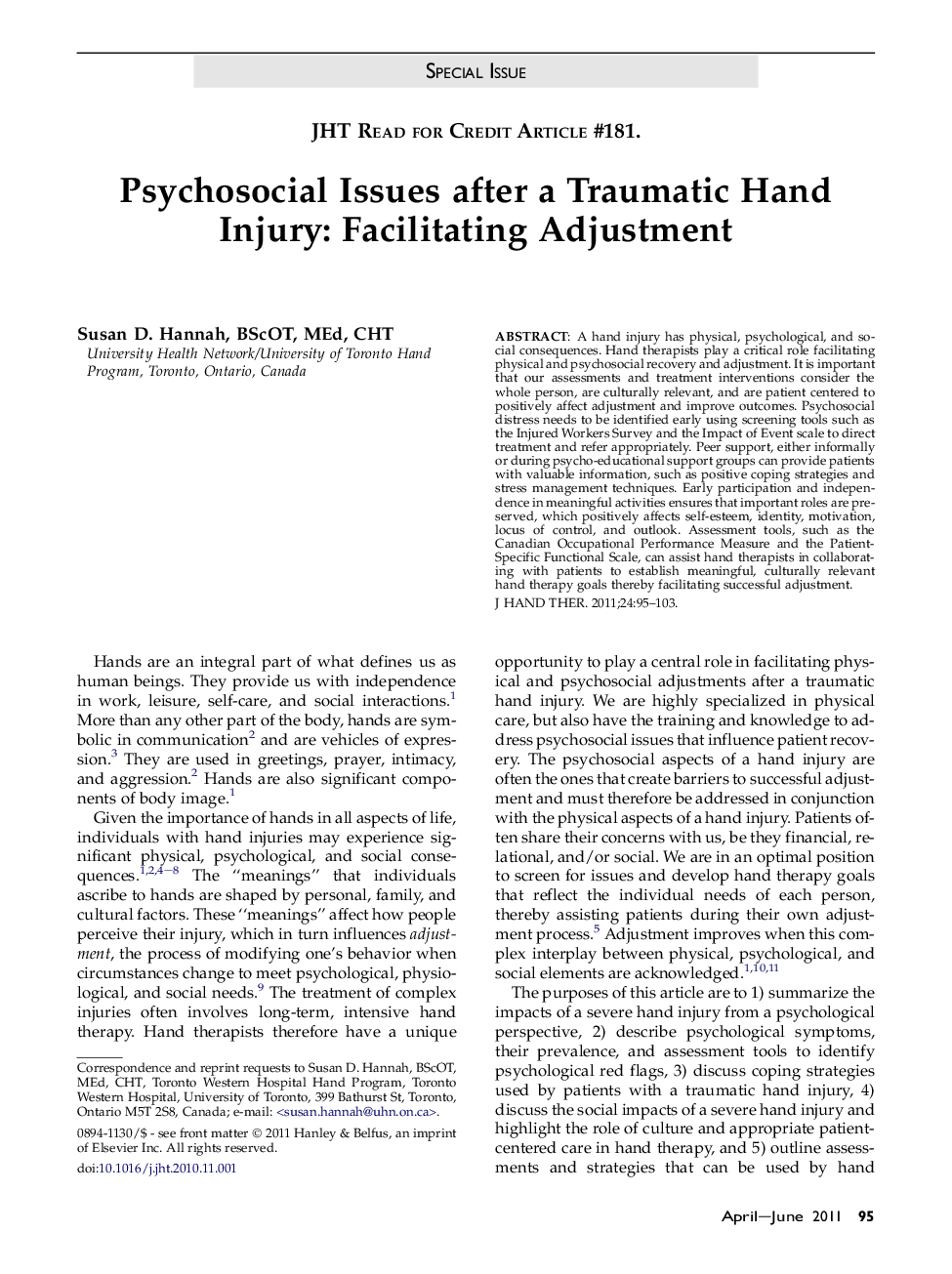| Article ID | Journal | Published Year | Pages | File Type |
|---|---|---|---|---|
| 2691181 | Journal of Hand Therapy | 2011 | 9 Pages |
A hand injury has physical, psychological, and social consequences. Hand therapists play a critical role facilitating physical and psychosocial recovery and adjustment. It is important that our assessments and treatment interventions consider the whole person, are culturally relevant, and are patient centered to positively affect adjustment and improve outcomes. Psychosocial distress needs to be identified early using screening tools such as the Injured Workers Survey and the Impact of Event scale to direct treatment and refer appropriately. Peer support, either informally or during psycho-educational support groups can provide patients with valuable information, such as positive coping strategies and stress management techniques. Early participation and independence in meaningful activities ensures that important roles are preserved, which positively affects self-esteem, identity, motivation, locus of control, and outlook. Assessment tools, such as the Canadian Occupational Performance Measure and the Patient-Specific Functional Scale, can assist hand therapists in collaborating with patients to establish meaningful, culturally relevant hand therapy goals thereby facilitating successful adjustment.
